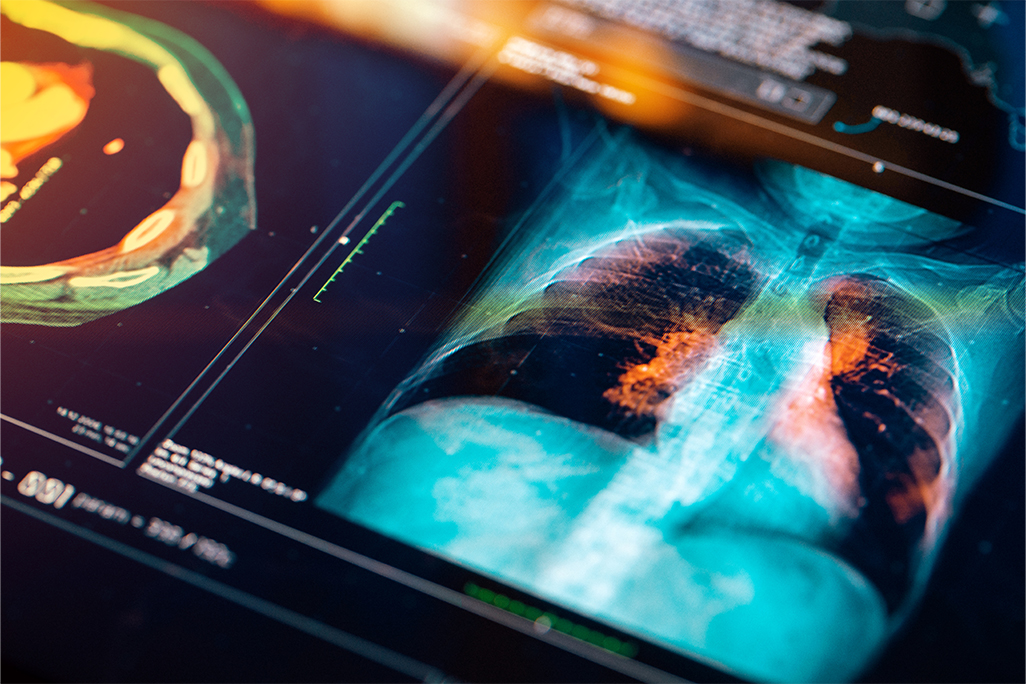New Belgian medical devices and in vitro diagnostics legislation comes into force
Published on 8th November 2022
The transposition of EU medtech regulations is progressing in Belgium – with repercussions for all medtech businesses active there.

Two new medical devices decrees have been published in the Belgian official gazette on 25 October 2022. While the decrees are presented as wrapping up the implementation of the European in vitro diagnostics (IVDs) regulations into national laws, a close look at their provision shows they have a much broader scope – with repercussions for all medtech businesses active in Belgium.
Implementation of EU medtech regulations
The first efforts to transpose the European MDR in Belgium took place last year with the entry into force of a four-fold legal and regulatory framework: the MDR act, published on 19 January 2021 and three decrees published just a few days before the MDR date of application (26 May 2021):
- the MDR implementation decree intended to carry through key provisions of the MDR act;
- the clinical investigations decree, which is specific to studies conducted with medical devices for a variety of purposes, some of which are not captured by the MDR;
- the MDR repeal and amendment decree needed to clean up local legacy device rules and align them with the new, post-MDR framework.
Implementation of EU IVD regulations
In vitro diagnostic medical devices are regulated by the IVDR, which despite being (partly) applicable throughout the EU since 26 May 2022 has been rolled out with significant delays as far as the Belgium legal framework is concerned:
As is the case for other medical devices governed by the MDR, IVDs captured by the IVDR and placed, made available or put into service on the Belgian market are governed by a law: the IVDR act , published on 30 June 2022. In addition, the two decrees released last week are:
- the performance studies decree, applicable since 26 October 2022;
- the IVDR repeal & amendment decree which went into effect on 4 November 2022.
An IVDR implementation decree mirroring the MDR implementation decree remains to be published.
IVDR repeal and amendment decree
The decree repeals provisions and adapts references in various legacy decrees (such as the IVDD implementation decree) on the grounds that in vitro diagnostic medical devices are now governed by the European IVDR instead of legacy legislation, with limited substantive changes to their regulatory framework.
Contrary to what its name suggests, the decree is not specific to IVDs and also covers other types of devices. Further, the decree repeals provisions and adapts references in other decrees on the grounds that medical devices are now governed by the MDR, irrespective of IVDR provisions.
Vigilance contact points
The vigilance contact point (VCP) decree of 15 November 2017 was amended by the decree to define and align the tasks of VCPs as per the Belgian MDR act and the Belgian IVDR act. Interestingly, as the updated VCP decree currently stands, distributors of (IVD) medical devices are now left without any local legal basis requiring them to appoint a VCP within their organisations.
The GDP guidance enacted by the local regulator (the federal agency for medicines and health products or famhp) provides such a requirement. However it does not define the VCP tasks and "adherence to it is not mandatory".
Both the MDR and the IVDR impose general vigilance requirements upon distributors, but both the registration of distributors and the surveillance of their vigilance activities by competent authorities remain a Member States competence under EU laws. Further information about local specifics for VCP can be found on the famhp website (Dutch version – French version).
Eudamed sanctions
The decree creates a new section in the MDR implementation decree entitled "Registration of manufacturers, authorised representatives and importers". This new section deals with sanctions that may be imposed upon economic operators who have not confirmed the accuracy of the data they have inputted onto Eudamed (the online European database of medical devices developed by the European Commission) as required by the MDR. If a breach of this MDR requirement is confirmed, the famhp may take corrective actions by suspending the operators' activities until they become compliant.
Eudamed data must be confirmed no later than one year after the first submission, and every second year thereafter (Article 31 (5) MDR).
System and procedure pack producers and sterilisers of systems and procedure packs are bound by different Eudamed registration requirements (Article 29 (2) MDR).
Local registration requirements on the famhp portal remain unchanged by the decree.
Derogations
The procedure to apply for Article 59 derogations has been clarified. Article 59 of the MDR (Derogation from the conformity assessment procedures) grants national competent authorities such as the famhp the power to authorise, on a duly justified request, the circulation on their territory of devices which are not (yet) CE marked.
In Belgium, this procedure – which has gained in popularity during the Covid-19 pandemic and continues to be used by economic operators struggling with notified bodies' bottlenecks – can only be triggered by manufacturers, authorised representatives or those duly mandated by them. The decree sets out the minimum information that must be provided by applicants, a far cry however from the intricate application forms they will have to complete in practice to meet the regulator's requirements (see the standard form and the patient-specific form).
Performance studies decree
The new decree regulates the conduct of performance studies in Belgium, including where Belgium is acting as a "coordinating Member State" or a "concerned Member State" per Article 74 of the IVDR (Coordinated assessment procedure for performance studies).
Prior authorisation and ethics committee review
It subjects the following studies to a prior authorisation from the famhp and ethics committee (EC) review according to the breakdown of responsibilities listed in Annex Ia of the decree (see below):
- Performance studies involving invasive sample-taking, interventional clinical performance studies and performance studies involving additional invasive procedures or other risks for subjects (Article 58 (1) of the IVDR);
- Performance studies involving companion diagnostics (including those using only left-over samples) (Article 58 (2), first sentence of the IVDR).
A separate, specific authorisation procedure is established under the decree for performance studies of devices that are manufactured and used within health institutions (Article 5 (5) of the IVDR). Applications for authorisations should follow the Annex IV canvas (see below).
EU law is silent as to the regulatory framework applicable to such studies. The national specifics provided in Chapter 3 of the decree have been applied in accordance with Article 34 and 36 of the Treaty on the functioning of the European Union by the Belgian Council of State.
Notification and ethics committee review
Under the new decree, the following studies are not subject to a prior authorisation but should be notified and obtain EC vetting following the checklist included in Annex II (see below) of the decree:
- PMPF studies that involve submitting subjects to procedures additional to those performed under the normal conditions of use of the device, where those additional procedures are invasive or burdensome (Article 70 of the IVDR).
PMPF studies are performance studies conducted to further assess, within the scope of its intended purpose, an IVD device which already bears the CE marking. For clarity, performance studies conducted to assess outside the scope of its intended purpose a device which already bears the CE marking, are subject to the famhp/EC authorisation procedure referred to above.
In accordance with the IVDR, the decree also requires that the following studies be notified to the famhp by their sponsor:
- Performance studies involving companion diagnostics using only left-over samples (Article 58 (2), second sentence of the IVDR).
A notification form template is provided in Annex III (see below), mistakenly referred to as "application form" in Article 21 of the decree. As part of this notification, the study protocol and informed consent documentation should also be provided to the regulator, unless such documentation has already been approved by an EC under the human experimentations act. In order to use leftover samples in a performance study, informed consent from the patient must have been obtained at the time of sample collection according to the regulator. Sponsors must therefore provide the famhp with evidence that consent has indeed been obtained.
Substantial modifications
Substantial modifications to the above studies are as a general rule subject to famhp notification and EC review. This means that the famhp is also involved for example in the review of substantial modifications to the PMPF studies mentioned above together with the EC; both organisations are tasked to review the appropriateness of the changes in accordance with Annex Ib of the decree (see our extract below).
Non-compliance
A number of corrective measures may be taken by the famhp in collaboration with the Ministry of Health where non-conformities are identified. Those range from requests to modify any aspect that is deemed non-compliant to suspending or terminating performance studies, and revoking relevant authorisations where applicable. The decree specifies the applicable procedure and the sponsors' rights, including expressing their views before a measure is taken.
Osborne Clarke comment
The two new decrees are meant to solidify the Belgian regulatory framework in the post-MDR/IVDR era. While branded as IVD-specific legislations, they have been partly used to align national legislation with a number of MDR changes and requirements that are not particular to IVD businesses, months after the May 2021 and May 2022 deadlines. Legacy legislation enacted pre-MDR/IVDR co-exists with those new requirements in a disparate yet extremely dense regulatory framework where local specifics and implementation of EU acquis are blended. This setup should prompt businesses active on the local market to watch their steps as they build their regulatory strategy. Delays in implementing EU regulations and inconsistencies between the updated rules and the regulator's website come in support of this recommendation. Belgium is a top 10 country in both the European IVD market and medical devices market (MedTech Europe, The European Medical Technology Industry in figures 2022).
- Annexes and links to legislation
-
Regulation (EU) 2017/745 on medical devices (English version) (the "MDR")
Belgian act of 22 December 2020 on medical devices (Dutch version – French version) (the "MDR act")
Belgian decree of 12 May 2021 implementing the MDR act (Dutch version – French version) (the "MDR implementing act")
Belgian decree of 18 May 2021 on clinical investigations of medical devices (Dutch version – French version) (the "clinical investigations decree")
Belgian decree of 28 April 2021 amending and repealing various provisions regarding medical devices (Dutch version – French version) (the "MDR repeal & amendment decree")
Regulation (EU) 2017/746 on in vitro diagnostic medical devices (English version) (the "IVDR")
Belgian act of 15 June 2022 on in vitro diagnostic medical devices (Dutch version – French version) (the "IVD act")
Belgian decree of 25 September 2022 relating to performance studies on in vitro diagnostic medical devices (Dutch version – French version) (the "performance studies decree")
Belgian decree of 13 September 2022 amending and repealing various provisions regarding in vitro diagnostic medical devices (French version – Dutch version) (the "IVDR repeal & amendment decree")
Belgian decree of 14 November 2001 on in vitro diagnostic medical devices (Dutch version – French version) (the "IVDD implementation decree")
Regulation (EU) 2017/746 on in vitro diagnostic medical devices (English version) (the "IVDR")
Belgian decree of 15 November 2017 relating to the vigilance contact point within hospitals and the registration of distributors of medical devices (Dutch version – French version) (the "VCP decree")
FAMHP, Guidance for distributors of medical devices (v.2.1) (26 May 2021) (English version) (the "GDP guidance")
Act of 7 May 2004 regulating experimentations on the human person (the "human experimentations act").



